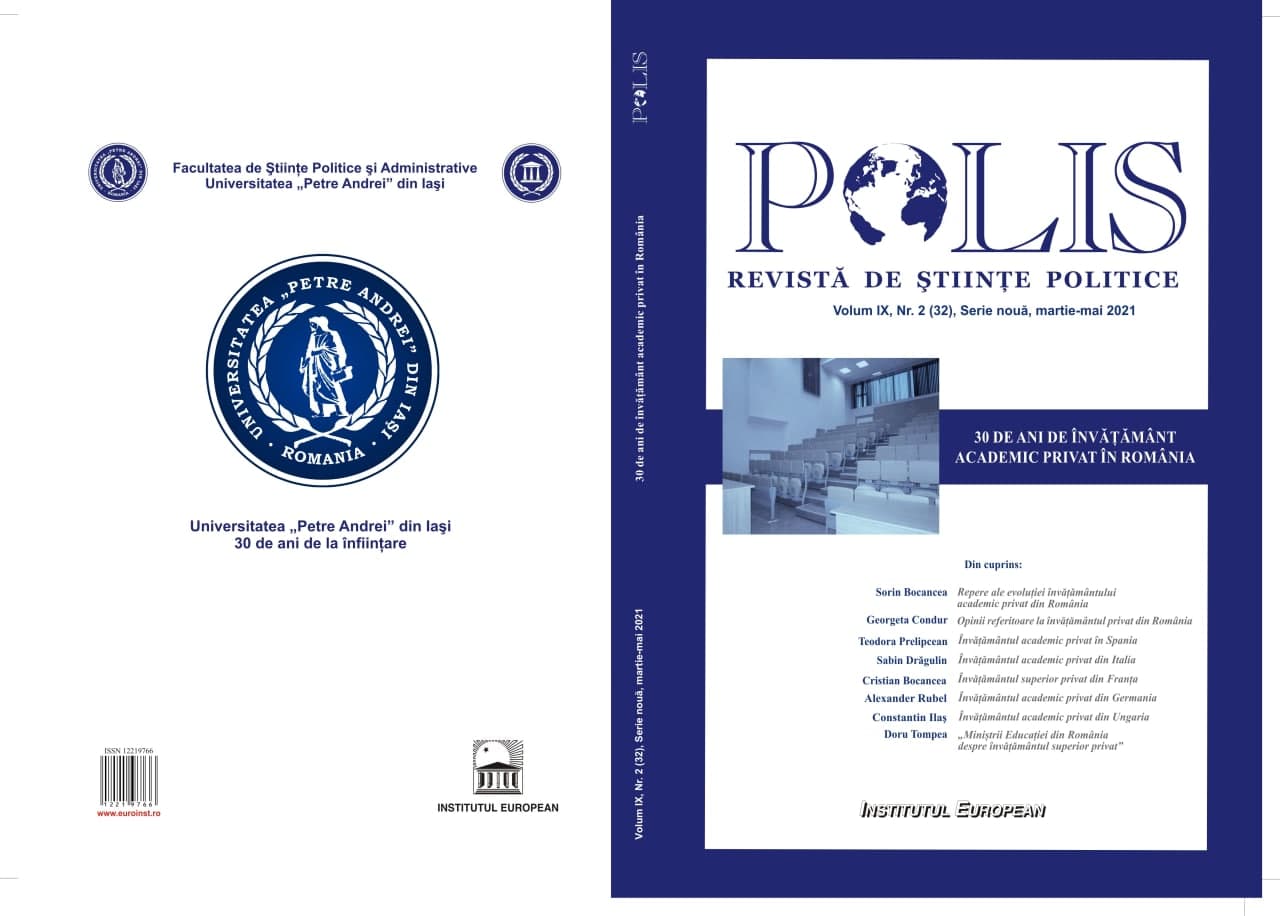Învățământul superior privat din Franța
Private Higher Education in France
Author(s): Cristian BocanceaSubject(s): Politics / Political Sciences, Political Sciences
Published by: Editura Institutul European
Keywords: diploma;private higher education;university;haute école;
Summary/Abstract: French higher education, with a tradition of nine centuries, stood out in its modern period through a pronounced statism. Although the state has regulated the organization of free (private) universities ever since 1875, shortly after (in 1880) it forbade them from using the name “university” as well as from issuing national diplomas. The institutions of private education were going to be called “superior schools” or “institutes”. Paradoxically, the category of “schools” also comprises approximately 50 of so-called “hautes écoles” or“écoles nationales”, which have either a private or a public regime and form the elite of French education (through extremely selective recruitment and quality of education). Currently, it is rather easy to set up private academic institutions, but they need to undergo a rigorous process of quality assessment and to cooperate with state universities or state higher schools to be able to issue state recognized diplomas. Starting with 2013, the Education Code established the category of “private higher education institutions of general interest (EESPIG), whose diplomas are recognized at a national level and which receive a modest allowance from the state.
Journal: Polis. Journal of Political Science
- Issue Year: IX/2021
- Issue No: 2 (32)
- Page Range: 111-130
- Page Count: 20
- Language: Romanian

